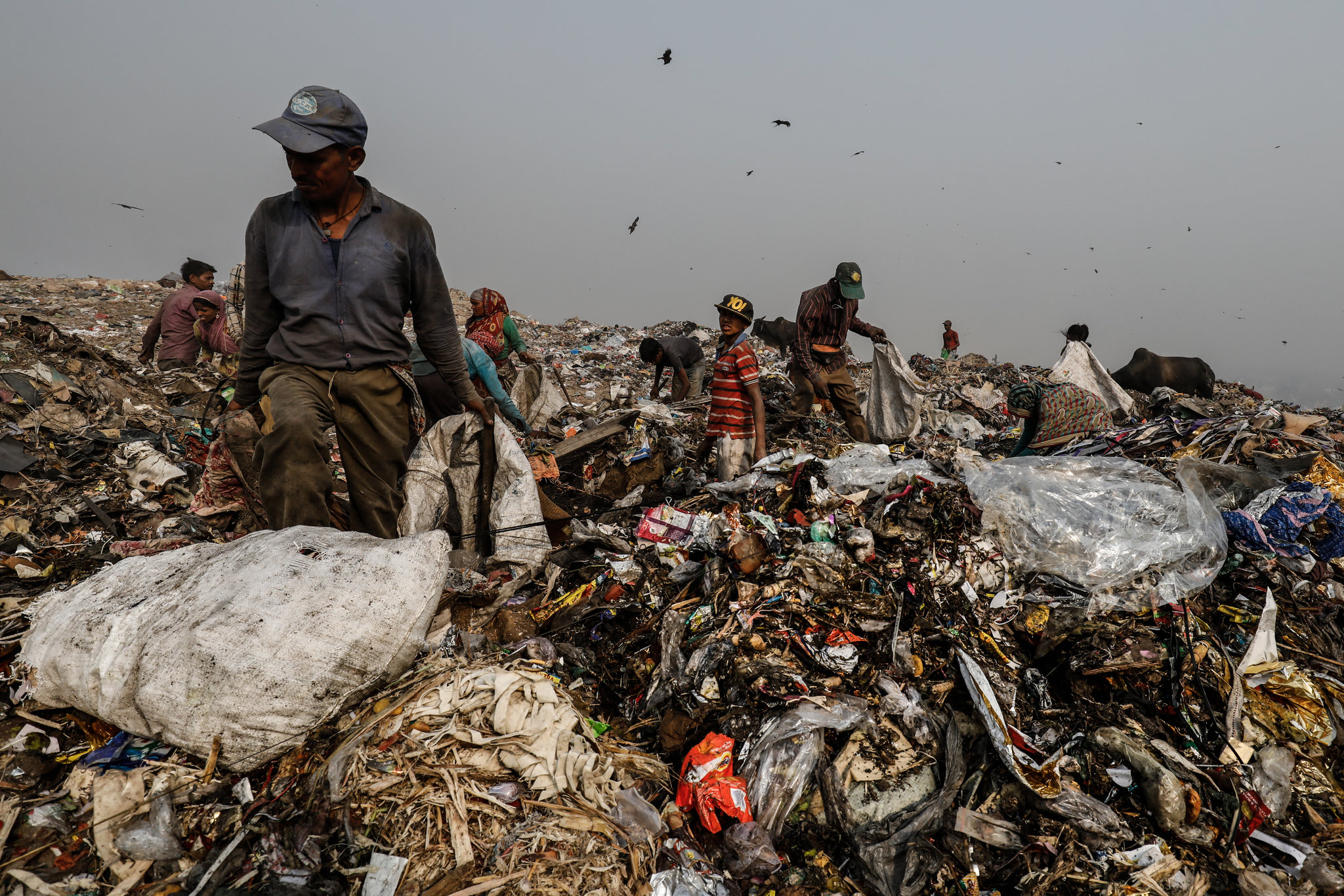Last week, a report conducted by the environmental organisation IPEN found hazardously high levels of various toxic chemicals, including dioxin – a pollutant linked to cancer, birth defects and Parkinson’s disease – to have contaminated the food sources of many Indonesian communities. The culprit? Plastic waste.
There has been no shortage of coverage warning of the evils of plastic. We are now keenly aware of the effect its improper disposal can have on our oceans and on our health. What is particularly shocking about this report, however, is that the contamination is directly linked to Western recycling procedures.
The New York Times reported that a significant proportion of the waste shipped from the US to Indonesia to be ‘recycled’ is used as fuel in local factories and kitchens, in part because imports are too contaminated to efficiently process, and because the burning of waste can be up to ten times cheaper than burning wood. This has devastating consequences both for the environment, and for the communities that rely on this toxic industry.
This isn’t the first time concerns have been raised about the recycling procedures of rich Western countries. The UK currently produces more plastic waste than it can process. Household recycling requires a lot of sorting, and overseas markets are increasingly demanding higher quality material, meaning much of it is now sent directly for incineration. Approximately two-thirds is sent to Asia or Europe, but once it is shipped its fate is beyond our control. Waste found in illegal dumps has frequently been traced back to UK sources, and here it is often burned or abandoned due to contamination and high processing costs making recycling the less profitable course of action.
Such revelations raise many difficult questions. Is recycling little more than a scam? Does it simply divert environmental crises towards the world’s poorer communities? Has the presence of colour-coded bins allowed the British public to live an excessive lifestyle guilt free? Has an official emphasis on recycling placated us, averting criticism away from governmental policy by creating the illusion of positive action?
I believe there are two main takeaways from these reports. Firstly, that we should aim to reduce, reuse and then recycle – in that particular order. It is obvious that at present we absolutely cannot guarantee how our recyclable waste is processed. Even when material is successfully repurposed, recycling is still the least efficient of the three objectives. It should be seen as a last resort, not as a solution.
More importantly, we should take these reports as evidence that individual action is not enough to tackle the environmental problems our planet faces. The efforts of well intentioned individuals to rinse and separate their plastic waste, refuse plastic straws, and carry around reusable bottles means nothing if our government continues to ship mass amounts of plastic to disreputable sources across the world. We need to demand structural change right here in the UK; large corporations must be held accountable for the waste they produce, and, despite the costs, we must develop the infrastructure needed to recycle our own waste efficiently.
Shockingly, not one of the UK’s three major political parties directly addresses recycling procedure in the proposals for environmental policy that have been published ahead of the December election. Labour, however, do begin their sixteen-page environment policy by stressing that the UK must end their reliance on ‘the choices made by individuals, and levels of voluntary corporate social responsibility in the private sector’, promising that their government would deliver structural change. The Liberal Democrats too promise structural transformation, crucially proposing the enforcement of legally binding targets for reducing waste and emissions, and using resources efficiently.
The Conservatives, however, commit just one page to environmental concerns. They make vague promises to examine waste levels, and look into improving recycling rates, but the actual policy changes they endorse remain firmly concentrated on individual action, focusing on implementing charges for single use plastic and increasing fines for littering. Such measures have quite simply proved themselves to be inadequate.
This is something I urge you to consider on December 12th.
More information on party policies can be found via the links below:
Conservative – https://www.conservatives.com/ShareTheFacts/2018/06/Environment
Liberal Democrat – https://www.libdems.org.uk/bold-action-on-climate-change
Labour – https://www.labour.org.uk/wp-content/uploads/2018/09/The-Green-Transformation-.pdf
Image Credit: The New York Times

